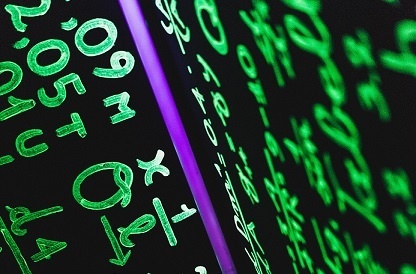Quantum computers can be so much more powerful because they can make use of these probabilities of quantum mechanical superpositions instead of just relying on a binary system. A computing operation moves the qubit superposition to the next computing operation, and parallel calculations can be performed as long as the qubit is not measured and forced to collapse.
Qubits may also have a characteristic feature called entanglement, i.e. two qubits can be entangled and can influence each other over arbitrarily long distances. A certain important subgroup of entangled qubits is called Bell-pair. This also means that if the state of one qubit is known after measurement, the state of the other qubit far away, that is entangled with it, is also determined. Because of this entanglement, the transfer of information from bit to bit as performed in calculations of classical systems is no longer necessary, because all qubits can perform the calculation simultaneously. In other words, with more qubits, more states can be processed simultaneously, and the quantum system is more powerful with a state space of 2**n dimensions rather than just 2**n elements in the case of classical bits.
| 

